International Spotlight: Rufus Norris
Talking to Rufus Norris about the film version of his stage hit London Road, opening in Toronto on November 18, is much like the movie itself: it starts out in one direction, zigzags all over the map, and brings you back to a place very close to where you started, but one you’ll never look at quite the same way again. We cover everything from a serial murderer to the perils of political correctness to the future of the modern theatre, all in the course of one intense lunch during the 2015 Toronto International Film Festival, freshened up a year later with some topical details.
London Road is the result of a real crime that horrified Great Britain in the late fall of 2006. A series of murders—five in total—occurred in Suffolk. All the victims were young women involved in prostitution, working the chilly, shadowy streets of Ipswich until they met brutal ends at the hands of one of their customers. The amount of media and public attention the case commanded led to a huge police dragnet, which found and arrested the murderer only nine days after his last crime.
Steven Wright, a fifty-eight-year-old forklift driver, was charged with all five murders and although he denied committing the homicides, he admitted to having had sex with the victims and confessed he had been utilizing the street-sex trade for twenty years. He was found guilty and sentenced to life imprisonment without parole or reprieve.
The case would have normally ended there, but a playwright named Alecky Blythe felt there was a story to be told. Not about the victims or the murderer, but about the people who lived on nearby London Road.
“Back in 2006, a man killed five young women, horribly,” begins Norris, the dynamic fifty-one-year-old artistic director of Britain’s National Theatre. “Five years later, a genius author, a brilliant composer, a stunning cast, and one aging git of a director sat in a room and made it into a musical.”
He laughs sardonically. “Guess which one I was.”

Olivia Coleman, centre, in the film version of London Road
The “verbatim theatre” that Blythe and Adam Cork created was one of the most acclaimed hits in the National Theatre’s history. In fact, many people feel it’s one of the major reasons Norris was given the number one job in the country’s number one theatre, succeeding Nicholas Hytner in 2015.
That was the same year Norris made London Road into a film. When asked why he did it, the answer is vintage Norris: straight up, no chaser.
“You get handed a very small handful of unique opportunities in your life. This was one of them. I wanted to make the most of it.”
Toronto theatre lovers will fondly recall the Canadian Stage production of London Road, directed by Jackie Maxwell, which opened in 2014 and was clearly the show of the year.
Norris was thrilled to learn of its success. “I was totally chuffed to hear how well it did here. I feared it was too British, but then I realized the things we were responding to, unhappily, exist all around the world.”

The cast of Canadian Stage’s 2014 production of London Road
Unlike most movie musicals that expend an ungodly amount of energy wondering how they’re going to expand the world of the stage version to a larger canvas, Norris did the opposite, taking the play’s terse universe and tightening it still further.
“I wanted us to feel like the whole thing was taking place on that one stretch of London Road where the killer lived. Focus, focus, focus.”
The end result is like the stage version, only different. It’s not like any other musical you’ve ever seen.
“That’s the whole point,” says Norris, crumbling a piece of bread with an obsessive concentration that reveals much about the man. “The ultimate sin in the theatre is boredom. People have been complaining to me that the seats in the Olivier Theatre need refurbishing. I tell them that if what I’m providing isn’t good enough to keep them at the edge of those seats, then who gives a fuck about the padding on the backs.”

Tom Hardy in London Road
Norris was born in England in 1965 but raised in Malaysia, Ethiopia, and Nigeria. After four failed attempts, he got into the Royal Academy of Dramatic Arts, trained as an actor, and then emerged to “an assortment of bloody awful odd jobs and the odd piece of theatrical work.”
He eventually transitioned into directing and made a big splash for himself with shows like Festen, Cabaret, and Les Liaisons Dangereuses. He next found a home at the National Theatre, doing an assortment of off-the-wall shows, including London Road.
There’s something street-smart and combat-ready about Norris, distancing him from the “Oxbridge Mafia” who ran Britain’s large theatres for many decades. When he was given the top job at the National, it was perceived as a highly canny choice inside the business, although some pundits commented on the possible difficulties inherent in “the ultimate outsider” getting “the ultimate insider” job.
And initially, they might have seemed right.
Tessa Ross, Norris’s choice for his chief executive, resigned after less than six months on the job, and some of the new AD’s earliest shows, like Everyman, didn’t get the rave reviews he used to earn before he became the boss.
A bit of a tempest in a teapot ensued when he announced he would be cancelling the precious “plus ones” that allowed critics to bring a companion to the theatre, but most of the ensuing noise was truly “sound and fury, signifying nothing.”

National Theatre productions, from left: Our Country’s Good, Waste, Les Blancs, and The Suicide
Despite all that, when the National’s year-end report was released in late October, it all looked like sunny skies and clear sailing. The average audience attendance at all of the NT’s theatres was 88 percent, or 787,000, which represented a seven-year high. Even more importantly, the under-thirty-five demographic of the audience increased 75 percent, and the National Theatre Live initiative, both broadcast and digital, reached a global audience over seven million people.
And in addition to all of that, Norris is proving to be a worthy advance man for the cause of theatre in the future, even though in our initial conversation he wondered about his right to do so.
“When I was appointed to the National, people said ‘You have to be a spokesman for the arts,’ and I agree, but you have to have accumulated the status to make those statements and have them ring. I’m not Nick Hytner with a dozen years of global success behind me. I’m the new kid on the block.”
But the new kid soon discovered he wasn’t afraid to speak his mind and promised gender parity for “all directors and living writers” at the National by 2021 and promised that artists of colour would make up 25 percent of the acting and directing pool by that date as well.

National Theatre productions, from left: Brainstorm, Wonderland, Jane Eyre, and People, Places & Things
“I feel diversity is crucial to the future of the National Theatre. No, I don’t just feel that. I believe it right down to my boots. But my approach to diversity is that you must have a hundred smaller points of discovery, not just one or two giant ones.
“When a writer of colour of great promise breaks on the scene and writes with tremendous passion about the world they came from, they get celebrated and congratulated, but they’re sometimes also patronized as well.
“You don’t want people to blow smoke up their ass. You want to say ‘You’re a really extraordinary talent, but take the long-term view and work on your craft.’”
He admits the same thing happens to young directors from all backgrounds.
“You take a great director from the Fringe and dump him right away on the Olivier stage, he’s probably going to fuck up and what good does that do anybody? It’s frustrating to see bright young things crash and burn.”
Thinking back to his own youth when he was acclaimed “perhaps too much, too soon, for too little,” he says that “there’s nothing more exciting than seeing a talented young person tip over the apple cart, but once they’ve done it, what do they do next? You can only reinvent the wheel so many bloody times. And you have to know how the wheel worked in the first place.”
He puts down his fork and laughs ruefully.
“I’m sounding like some old git now, which I never thought I would, but it’s all about nurture.
“As we become elders of the culture, our principal responsibility is not to tell people how to do things or to keep them down but to give them opportunity in the right way, which means giving them an opportunity to fulfill their interests, not yours.”
As the conversation wraps up, he brings it back to the project that started us talking, London Road.

Kate Fleetwood in London Road
“I feel it’s an important piece of work because it goes deeply into the lives of a specific group of people in a specific place. We’re called the National Theatre, after all, because we have to reflect the nation we inhabit.
“And to do that, we have to take a long-term view. We have to make the theatre reflect the lives of the people who see it so that one day they’ll want to create theatre as well. People of all colours, all backgrounds.”
He laughs, but his eyes are dead serious.
“When critics say to me ‘You’re just practising political correctness gone mad,’ I want to say ‘Fuck you, mate. Look at the world we live in.’”

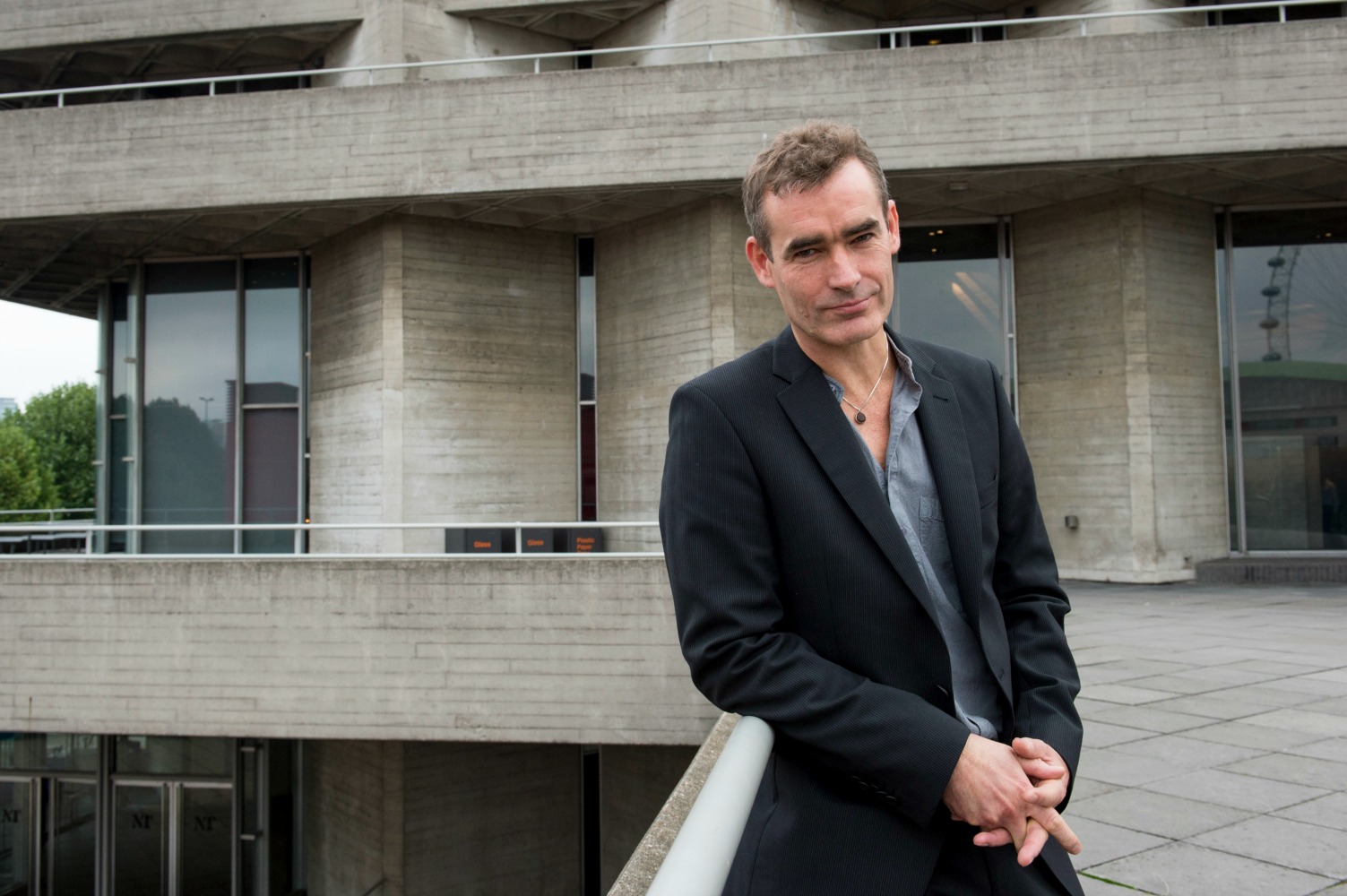

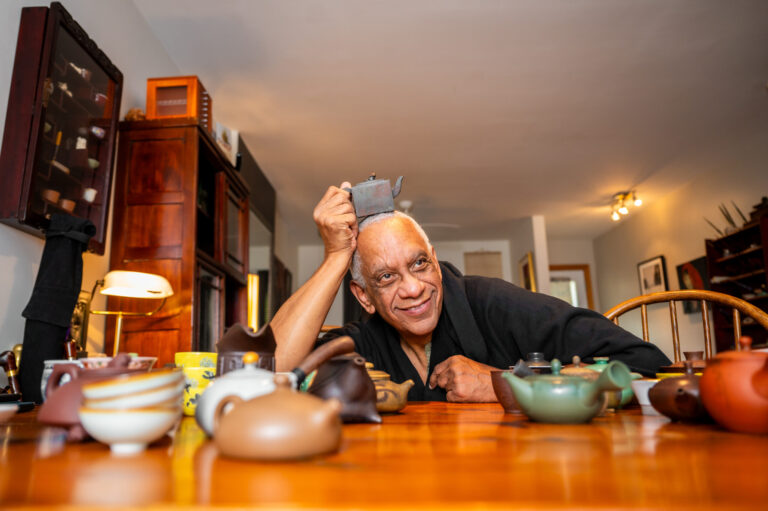

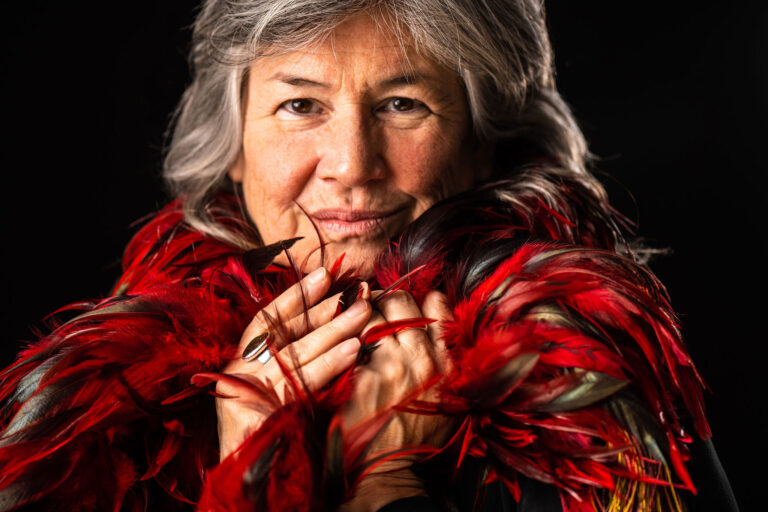
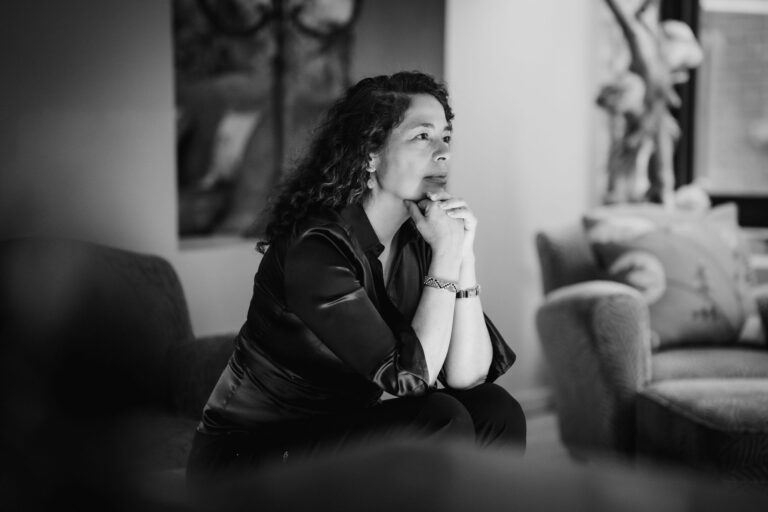
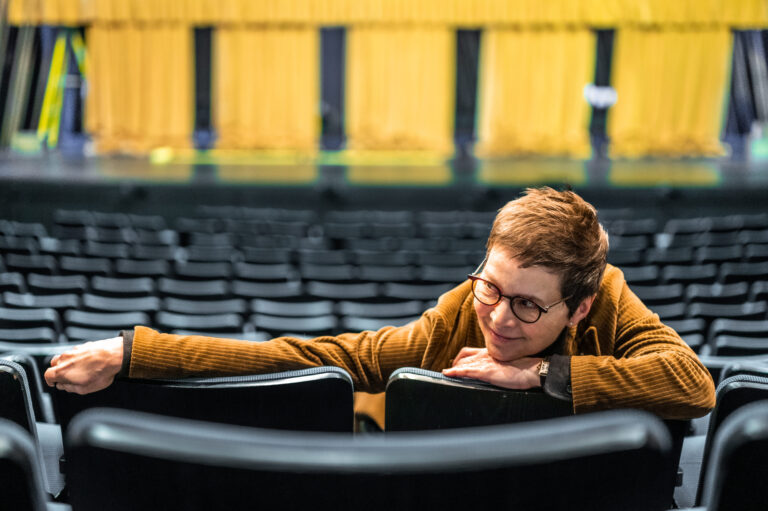

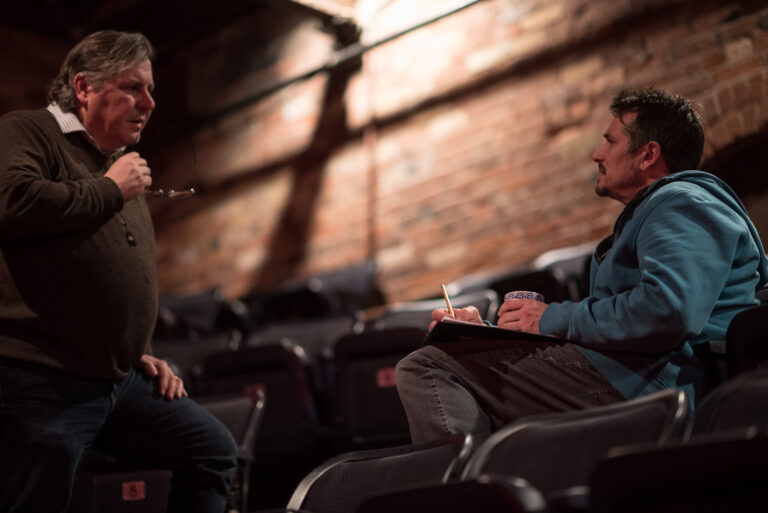
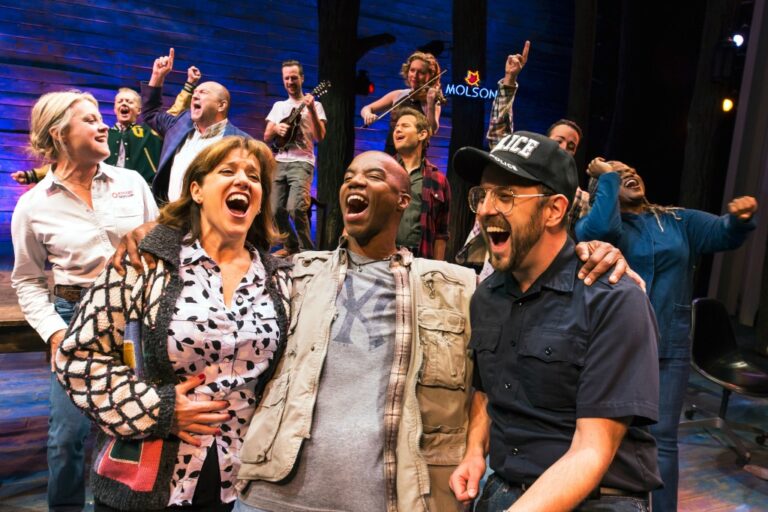

Comments